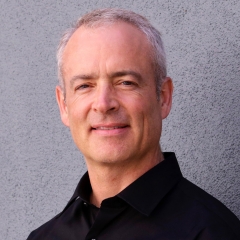 Andrew R. Teel, Editor-in-Chief |
Andrew R. Teel received his A.B. degree in Engineering Sciences from Dartmouth College in Hanover, New Hampshire, in 1987, and his M.S. and Ph.D. degrees in Electrical Engineering from the University of California, Berkeley, in 1989 and 1992, respectively. After receiving his Ph.D., he was a postdoctoral fellow at the Ecole des Mines de Paris in Fontainebleau, France. In 1992 he joined the faculty of the Electrical Engineering Department at the University of Minnesota, where he was an assistant professor until 1997. Subsequently, he joined the faculty of the Electrical and Computer Engineering Department at the University of California, Santa Barbara, where he is currently a professor.
His research interests are in nonlinear and hybrid dynamical systems, with a focus on stability analysis and control design. He has received NSF Research Initiation and CAREER Awards, the 1998 IEEE Leon K. Kirchmayer Prize Paper Award, the 1998 George S. Axelby Outstanding Paper Award, and was the recipient of the first SIAM Control and Systems Theory Prize in 1998. He was also the recipient of the 1999 Donald P. Eckman Award and the 2001 O. Hugo Schuck Best Paper Award, both given by the American Automatic Control Council, and also received the 2010 IEE Control Systems Magazine Outstanding Paper Award. He is a Fellow of the IEEE and of IFAC. He served as an associate editor for Automatica from 1999 to 2009, when he was appointed area editor for Nonlinear Systems and Contol. |
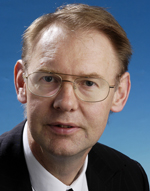 Ian R. Petersen, Editor for Optimization in Systems and Control |
Ian R. Petersen was born in Victoria, Australia. He received a Ph.D in Electrical Engineering in 1984 from the University of Rochester. From 1983 to 1985 he was a Postdoctoral Fellow at the Australian National University. In 1985 he joined the University of New South Wales at the Australian Defence Force Academy where he is currently Scientia Professor and an Australian Research Council Federation Fellow in the School of Information Technology and Electrical Engineering. He has served as an Associate Editor for the IEEE Transactions on Automatic Control, Systems and Control Letters, Automatica, and SIAM Journal on Control and Optimization. He is a fellow of the IEEE. His main research interests are in robust control theory, quantum control theory and stochastic control theory. |
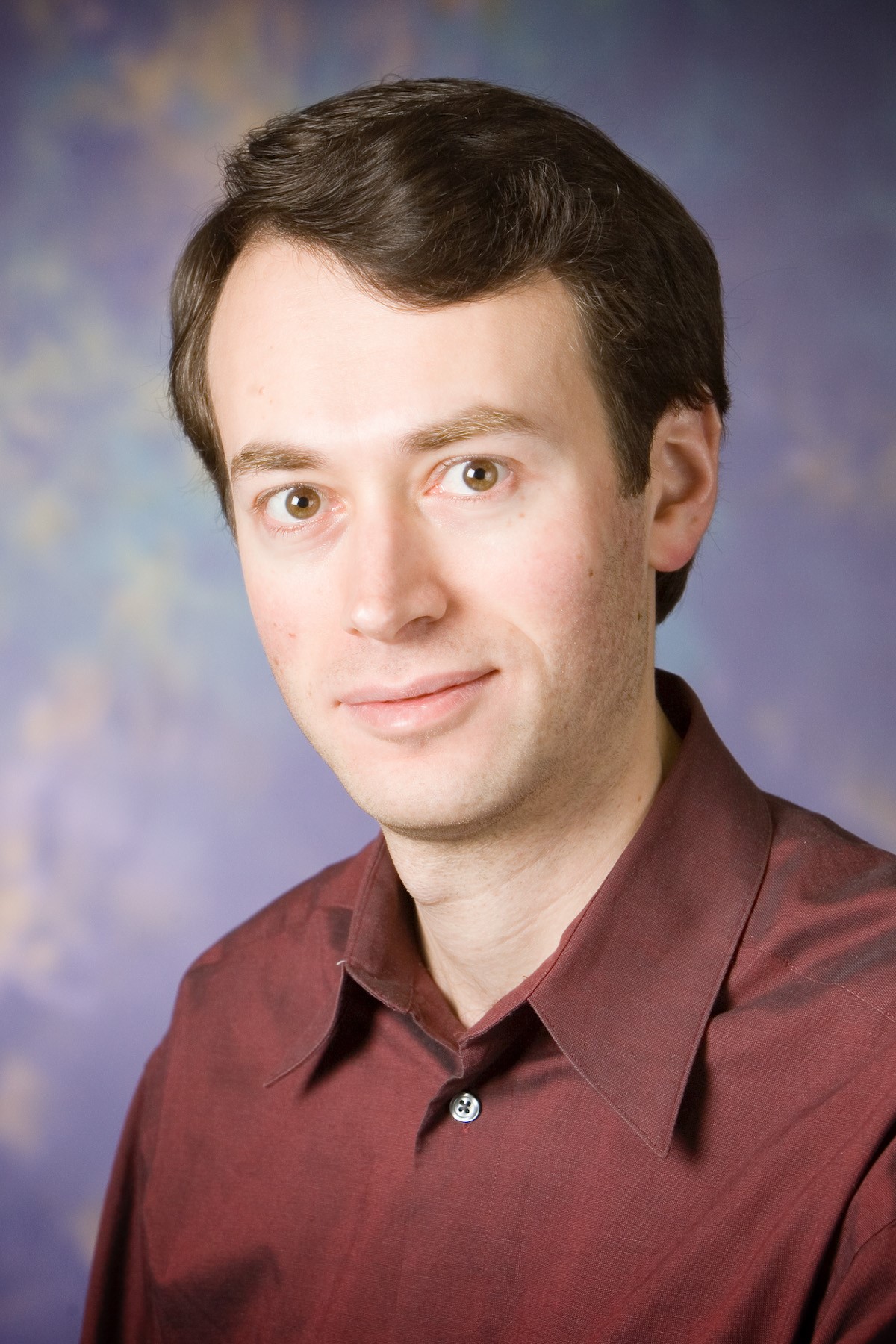 Daniel Liberzon, Editor for Nonlinear Systems and Control
|
Daniel Liberzon
was born in the former Soviet Union in 1973. He did his undergraduate studies in the Department of Mechanics and Mathematics at Moscow State University from 1989 to 1993. In 1993 he moved to the United States to pursue graduate studies in mathematics at Brandeis University, where he received the Ph.D. degree in 1998 (supervised by Prof. Roger W. Brockett of Harvard University).
Following a postdoctoral position in the Department of Electrical Engineering at Yale University from 1998 to 2000 (with Prof. A. Stephen Morse), he joined the University of Illinois at Urbana-Champaign, where he is now a professor in the Electrical and Computer Engineering Department and the Coordinated Science Laboratory.
His research interests include nonlinear control theory, switched and hybrid dynamical systems, control with limited information, and uncertain and stochastic systems.
He is the author of the books "Switching in Systems and Control" (Birkhauser, 2003) and "Calculus of Variations and Optimal Control Theory: A Concise Introduction" (Princeton Univ. Press, 2012).
His work has received several recognitions, including the 2002 IFAC Young Author Prize and the 2007 Donald P. Eckman Award. He delivered a plenary lecture at the 2008 American Control Conference. He has served as Associate Editor for the journals IEEE Transactions on Automatic Control and Mathematics of Control, Signals, and Systems. He is a fellow of IEEE since 2013 and of IFAC since 2016.
|
 Miroslav Krstic, Editor for Adaptive and Distributed Parameter Systems
|
Miroslav Krstic
was born on September 14, 1964. He received his B.S. degree at University of Belgrade, Yugoslavia, and his M.S. and Ph.D. degrees at University of California at Santa Barbara, all in electrical engineering, in 1989, 1992, and 1994, respectively. He started his academic career in 1995 at University of Maryland, College Park, as an Assistant Professor in the Department of Mechanical Engineering and the Institute of Systems Research.
Krstic moved to University of California, San Diego (UCSD), in 1997 and was promoted to Professor in 1999. He is the founding Director of the Cymer Center for Control Systems and Dynamics at UCSD and holds the endowed Daniel L. Alspach Professorship. Miroslav is a coauthor of the books Nonlinear and Adaptive Control Design (New York: Wiley, 1995), Stabilization of Nonlinear Uncertain Systems (New York: Springer-Verlag, 1998), Flow Control by Feedback (New York: Springer-Verlag, 2002), Real Time Optimization by Extremum Seeking Control (New York: Wiley, 2003), Control of Turbulent and Magnetohydrodynamic Channel Flows (Boston: Birkhauser, 2007), Boundary Control of PDEs: A Course on Backstepping Designs (Philadelphia: SIAM, 2008), Delay Compensation for Nonlinear, Adaptive, and PDE Systems (Boston: Birkhauser, 2009), and Adaptive Control of Parabolic PDEs (Princeton University Press, 2010). Krstic received the UCSB Best Dissertation Award, the National Science Foundation Career Award, the Office of Naval Research Young Investigator Award, the Presidential Early Career Award for Scientists and Engineers (PECASE), the George S. Axelby Outstanding Paper Award of the IEEE Transactions on Automatic Control, and the O. Hugo Schuck Award for the Best Paper at the American Control Conference. He was elected Fellow of IEEE in 2001 and Fellow of IFAC in 2008. In 2005 he received the UCSD Chancellor's Associates Award for Excellence in Research, as the first engineering professor to receive this recognition in sixteen years of existence of this award. In 2007 he was appointed Russell Severance Springer Distinguished Visiting Professor at University of California, Berkeley. Miroslav has served as Associate Editor for IEEE Transactions on Automatic Control, International Journal of Adaptive Control and Signal Processing, Systems and Control Letters, ESAIM: Control, Optimisation, and Calculus of Variations, and several other journals. Since 2009 he has been serving as one of the inaugural Senior Editors in IEEE Transactions on Automatic Control. Since 2010 he has been serving as Editor in the Springer-Verlag book series Communications and Control Engineering. He has also served as Vice President for Technical Activities, a member of the Executive Committee and the Board of Governors of the IEEE Control Systems Society, and Vice-Chair in his department at UCSD. Krstic has given a dozen plenary lectures at conferences and several distinguished lectures at universities. |
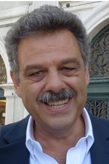
Thomas Parisini, Editor for Control System Applications |
Thomas Parisini received the Ph.D. degree in Electronic Engineering and Computer Science in 1993 from the University of Genoa. He was with Politecnico di Milano and since 2010 he is the Chair of Industrial Control and also Director of Research at Imperial College London. Since 2001 he is also Danieli Endowed Chair of Automation Engineering with University of Trieste. In 2009-2012 he served as Deputy Rector of University of Trieste. br /> Thomas Parisini was a co-recipient of the 2014 IFAC Best Application Paper Prize of the Journal of Process Control, Elsevier, for the three-year period 2011-2013 and of the 2004 Outstanding Paper Award of the IEEE Transactions on Neural Networks. He was also a recipient of the 2007 IEEE Distinguished Member Award. In 2012 he was awarded a prestigious three-years ABB Research Grant dealing with energy-autonomous sensor networks for self-monitoring industrial environments and in 2016 he was awarded as PI at Imperial of a multi-million EU Horizon 2020 flagship project coordinated by the University of Cyprus to develop a Centre of Excellence on monitoring, control and security of critical infrastructure systems. During 2009-2016 he served as Editor-in-Chief of the IEEE Transactions on Control Systems Technology and is currently the Vice-President for Publications Activities of the IEEE Control Systems Society. He is the Chair of the IFAC Technical Committee on Fault Detection, Supervision & Safety of Technical Processes - SAFEPROCESS. He is currently serving as an Associate Editor of the Int. J. of Control and served as Associate Editor of Automatica, of the IEEE Transactions on Automatic Control, of the IEEE Transactions on Neural Networks, and of the Int. J. of Robust and Nonlinear Control. Among other activities, he was the Program Chair of the 2008 IEEE Conference on Decision and Control and the General Co-Chair of the 2013 IEEE Conference on Decision and Control. He is a Fellow of the IFAC and of the IEEE. He authored or co-authored more than 270 research papers in archival journals, book chapters, and international conference proceedings. His research interests include neural-network approximations for optimal control problems, fault diagnosis for nonlinear and distributed systems, nonlinear model predictive control systems and nonlinear estimation. |
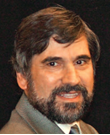 Christos G. Cassandras, Editor for Networks in Systems and Control
|
Christos G. Cassandras
is Distinguished Professor of Engineering at Boston University. He is Head of the Division of Systems Engineering, Professor of Electrical and Computer Engineering, and co-founder of Boston University's Center for Information and Systems Engineering. He received degrees from Yale University (B.S., 1977), Stanford University (M.S.E.E., 1978), and Harvard University (S.M., 1979; Ph.D., 1982). In 1982-84 he was with ITP Boston, Inc. In 1984-1996 he was a faculty member at the Department of Electrical and Computer Engineering, University of Massachusetts/Amherst.
He specializes in the areas of discrete event and hybrid systems, cooperative control, stochastic optimization, and computer simulation, with applications to computer and sensor networks, manufacturing systems, and transportation systems. He has published over 350 refereed papers in these areas, and five books. He has also collaborated with The MathWorks, Inc. in the development of the discrete event and hybrid system simulator SimEvents. He was Editor-in-Chief of the IEEE Transactions on Automatic Control (1998-2009) and the 2012 President of the IEEE Control Systems Society (CSS). He has been a plenary speaker at many international conferences and an IEEE Distinguished Lecturer. He is the recipient of several awards, including the 2011 IEEE Control Systems Technology Award, the Distinguished Member Award of the IEEE Control Systems Society (2006), the 1999 Harold Chestnut Prize (IFAC Best Control Engineering Textbook), a 2011 prize for the IBM/IEEE Smarter Planet Challenge competition, a 1991 Lilly Fellowship and a 2012 Kern Fellowship. He is a member of Phi Beta Kappa and Tau Beta Pi. He is also a Fellow of the IEEE and a Fellow of the IFAC. |
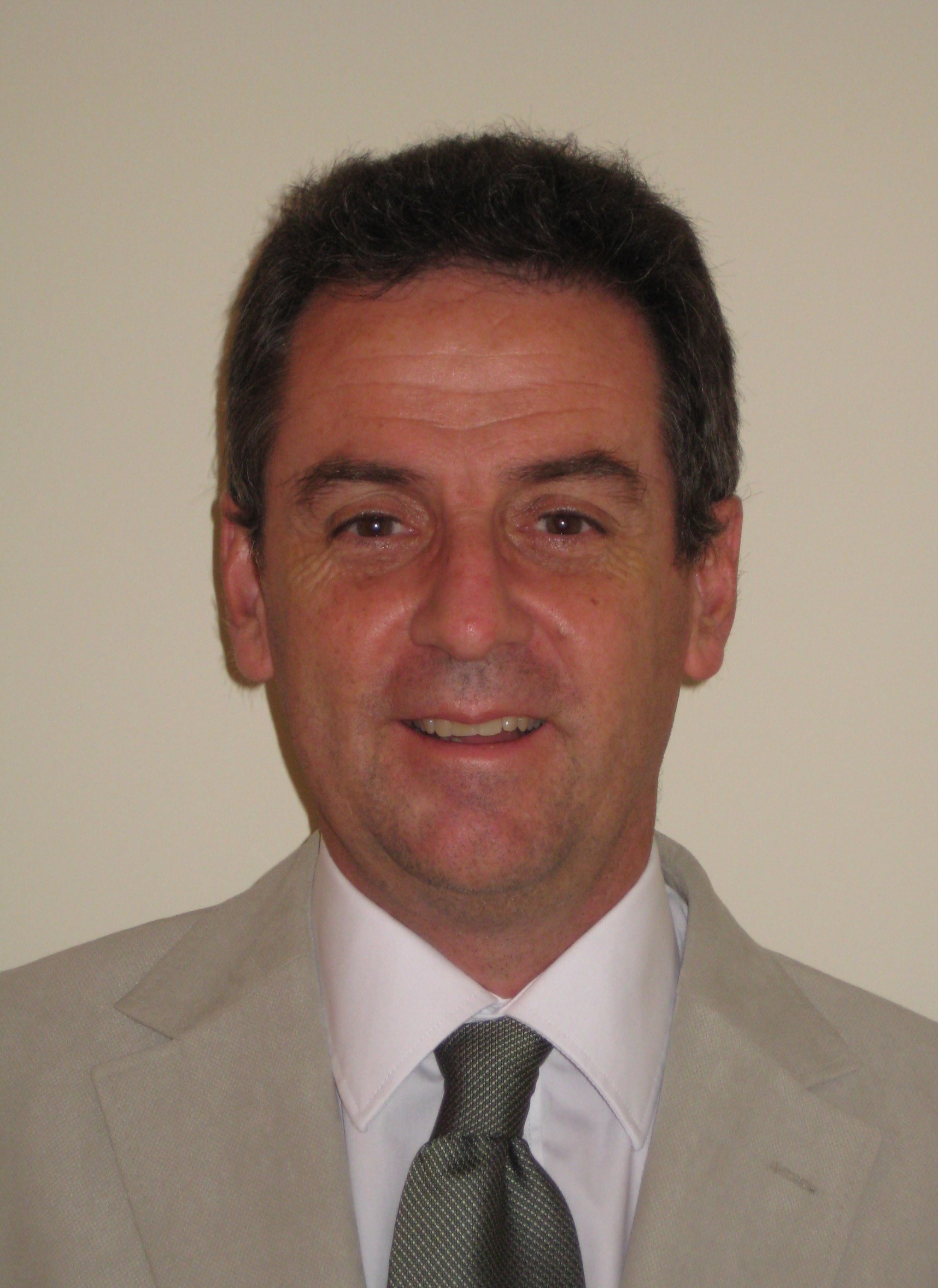
Rick Middleton, Editor for System and Control Theory |
Rick Middleton
was born on 10 December 1961 in Newcastle Australia. He received his B.Sc. (1983), B.Eng. (Hons-I) (1984) and Ph.D. (1987) from the University of Newcastle, Australia. He has had visiting appointments at the University of Illinois at Urbana-Champaign, the University of Michigan and the Hamilton Institute (National University of Ireland Maynooth). In 1991 he was awarded the Australian Telecommunications and Electronics Research Board Outstanding Young Investigator award. In 1994 he was awarded the Royal Society of New South Wales Edgeworth-David Medal; he was elected to the grade of Fellow of the IEEE starting 1999, received the M.A. Sargent Award from the Electrical College of Engineers Australia in 2004, and as a Fellow of the International Federation of Automatic Control in 2013.
He has served as an associate editor of the IEEE Transactions on Automatic Control, the IEEE Transactions on Control System Technology, and Automatica. He has also served as associate editor at large and senior editor of the IEEE Transactions on Automatic Control, as Head of Department of Electrical and Computer Engineering at the University of Newcastle; as a panel member and sub panel chair for the Australian Research Council; as Vice President - Member Activities and also as Vice President - Conference Activities of the IEEE Control Systems Society; President (2011) of the IEEE Control Systems Society; as Director of the ARC Centre for Complex Dynamic Systems and Control; a Distinguished Lecturer for the IEEE Control Systems Society, and as a research professor at the Hamilton Institute, The National University of Ireland, Maynooth. He is currently director of the University of Newcastle Priority Research Centre for Complex Dynamic Systems and Control. His research interests include a broad range of Control Systems Theory and Applications, including feedback performance limitations, information limited control and systems biology. |
 Torsten Söderström, Editor for System Identification and Filtering |
Torsten Söderström received the MSc degree (civilingenjör) in engineering physics in 1969 and the PhD degree in automatic control in 1973, both from Lund Institute of Technology, Lund, Sweden. He is a Fellow of IEEE, and an IFAC Fellow. During 1967-1974 he held various teaching positions at the Lund Institute of Technology. Since 1974, he has been with the Division of Systems and Control, Uppsala University, Uppsala, Sweden, where he is a professor of automatic control. Dr. Söderström is the author or coauthor of many technical papers. In 1981 he was, with coauthors, given an Automatica Paper Prize Award. Within IFAC he has served in several capacities including vice-chairman of the TC on Modeling, Identification and Signal Processing, (1993-99), IPC chairman of the IFAC SYSID'94 Symposium, Council member (1996-2002), Executive Board member (1999-2002) and Awards Committee Chair (1999-2002). He was an associate editor (1984-91), guest associate editor and editor for four special issues with Automatica, and has been the editor for the area of System Parameter Estimation since 1992. |
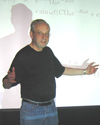 John Baillieul, Editor for Survey Papers |
John Baillieul John Baillieul's research deals with robotics, the control of mechanical systems, and mathematical system theory. His PhD dissertation, completed at Harvard University under the direction of R.W. Brockett in 1975, was an early work dealing with connections between optimal control theory and what has recently been called "sub-Riemannian geometry." After publishing a number of papers developing geometric methods for nonlinear optimal control problems, he turned his attention to problems in the control of nonlinear systems modeled by homogeneous polynomial differential equations. Such systems describe, for example, the controlled dynamics of a rigid body. His main controllability theorem applied the concept of finiteness embodied in the Hilbert basis theorem to develop a controllability condition that could be verified by checking the rank of an explicit finite dimensional operator. In looking for additional ways in which the mathematical machinery of algebraic geometry could be used to address problems in engineering, Baillieul began a collaboration with C.I. Byrnes on the bifurcation and stability theory of large-scale electric energy system dynamics. A significant discovery was that solutions to the lossless load-flow equations could be exactly enumerated as a result of identifying and isolating some spurious solutions of dimension higher than zero. During the mid 1980's, Baillieul collaborated with M. Levi to develop a control theory for rotating elastic systems. Baillieul and Levi's basic results on the stability of equilibrium configurations of rotating elastic spacecraft have provided the foundation for a great deal of subsequent research in the area. At about the same period in his career, Baillieul wrote a number of papers on motion planning and control of kinematically redundant manipulators. Combined with the spacecraft work, this led naturally to work on problems associated with anholonomy in planning motions for robots which have elastic joints and other components which store energy. This work led naturally to applying the methods of dynamical systems theory and classical geometric nonlinear control theory to problems of current technological interest including problems or fluid structure interactions, microelectromechanism dynamics, adaptive optics, and network mediated control of large scale device arrays. His most recent work has dealt with the interplay between communications and information theory and control. He was among the first to articulate a version of the now well-known data-rate theorem---which gives a simple bound in terms of open-loop pole locations on the data-rate that must be sustained in a closed loop system in order for it to be stable. Together with Keyong Li, he has gone on to explore source coding of feedback signals which are designed to provide optimally robust performance in the face of time-varying feedback channel capacity. Motivated by this work, Baillieul has been led to other challenges in the design and operation of networked control systems. He was a pioneer in applying ideas from the theory of graph rigidity to cooperative control of multiple autonomous mobile robot formations. Graph theory is now regarded as perhaps the single most important enabling abstraction for the design of decentralized control algorithms for networks of mobile robots. The work on formation rigidity that has followed the 2003 CDC paper of Baillieul and Suri is an important piece of this abstraction. Baillieul's most recent work deals with decision making in mixed teams of humans and intelligent automata and in particular in laying the foundation of action-mediated communication within such teams. John Baillieul is a Fellow of the IEEE and a Fellow of SIAM. |
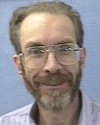 André L. Tits, Editor for Rapid Publications |
André L. Tits was
born in Verviers, Belgium on April 13, 1951. He received the 'Ingénieur
Civil' degree from the University of Liège, Belgium and the M.S. and Ph.D.
degrees from the University of California, Berkeley, all in Electrical
Engineering, in 1974, 1979, and 1980, respectively. Since 1981, Dr. Tits has been with the University of Maryland, College Park. Currently, he is a Professor of Electrical Engineering and he holds a permanent joint appointment with the Institute for Systems Research. He has held visiting positions at the University of California, Berkeley, at the Lund Institute of Technology, at INRIA, at the Catholic University of Louvain at Louvain-la-Neuve, Belgium and at the Australian National University. Dr. Tits' main research interests lie in various aspects of numerical optimization, optimization-based system design and robust control with emphasis on numerical methods. In addition to carrying out fundamental research work in these areas, researchers in Dr. Tits' group have developed several software packages. Especially popular is FSQP, a tandem of sophisticated software suites for nonlinear constrained optimization, in use at over 1000 sites around the world. Dr. Tits received an NSF Presidential Young Investigator Award in 1985, and is a Fellow of the Institute of Electrical and Electronics Engineers, and a member of IEEE. |
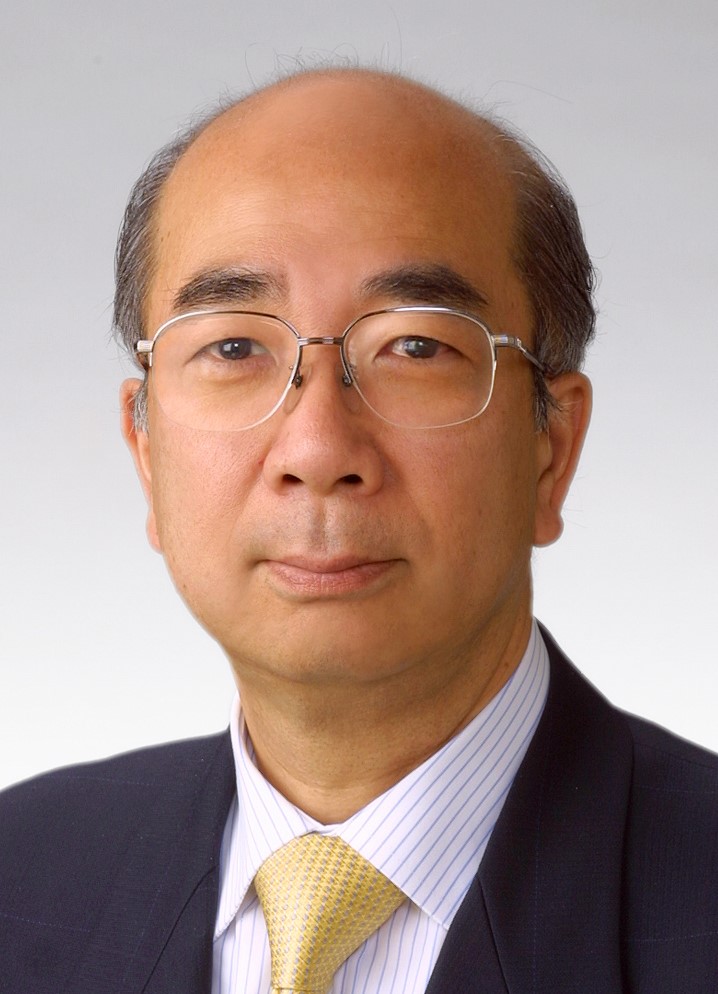 Yutaka Yamamoto, Editor for Book Reviews |
Yutaka Yamamoto
received his B. S. and M. S. degrees from Kyoto University, and M. S. and Ph.D. degrees in mathematics from the University of Florida in 1976 and 1978, respectively.
He is currently a professor at the Department of Applied Analysis and Complex Dynamical Systems, Graduate School of Informatics of Kyoto University.
His research and teaching interests are in realization and robust control of distributed parameter systems, learning control systems, sampled-data systems, and its application to digital signal processing, with emphasis on sound and image processing. Dr. Yamamoto received various awards including G. S. Axelby Outstandig Paper Award of the IEEE Control Systems Society in 1996, the Commendation for Science and Technology by the Minister of Education in 2007, the Distinguished Member Award, and the Transition to Practice Award of the IEEE Control Systems Society in 2009 and 2012, respectively. He is a Fellow of the IFAC, IEEE and SICE. He served for the IEEE Control Systems Society in various capacities: President (2013), Vice President for Technical Activities (2005-2006), as well as the Vice President for Publication Activities for 2007-2008. He served as an associate editor of Automatica during 1993-1997. He also has had editorial experiences of serving as a Senior Editor (2010-2011) for the IEEE Transactions on Automatic Control, as well as an associate editor for the same journal, Systems and Control Letters, and Mathematics of Control, Signals and Systems. He was the General Chair of MTNS 2006 and chair of the Steering Committee of MTNS. He was also a past President of ISCIE of Japan. |
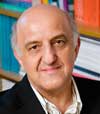 Tamer Başar, Editor-in-Chief Emeritus |
Tamer Başar was born in Istanbul, Turkey, on
January 19, 1946. He received B.S.E.E. degree from
Robert College, Istanbul, in 1969,
and M.S., M.Phil,
and Ph.D. degrees in engineering and applied science from
Yale University, in 1970, 1971 and 1972, respectively.
After stints at Harvard University,
Marmara Research Institute (Gebze, Turkey), and
Bogaziçi University
(Istanbul), he joined the
University of Illinois at
Urbana-Champaign in 1981,
where he is currently the Fredric G. and Elizabeth H.
Nearing Professor of
Electrical and Computer
Engineering, and Research Professor at the
Coordinated Science Laboratory.
He has spent sabbatical years at Twente
University of Technology (the Netherlands; 1978-79),
and INRIA (France; 1987-88, 1994-95).
Dr. Başar has authored or co-authored over 150 journal articles and book chapters, and over 200 conference publications in the general areas of optimal, robust, and adaptive control; large-scale and decentralized systems and control; dynamic games; stochastic control; estimation theory; stochastic processes; information theory; communication systems and networks; and mathematical economics. He is co-author of the text Dynamic Noncooperative Game Theory (Academic Press, 1982; second edition, 1995; latest edition in SIAM Series in Classics in Applied Mathematics, 1999), editor of the volume Dynamic Games and Applications in Economics (Springer-Verlag, 1986), co-editor of Differential Games and Applications (Springer-Verlag, 1988), co-editor of Advances in Dynamic Games and Applications (Birkhäuser, 1994), co-author of the text H-infinity Optimal Control and Related Minimax Design Problems (Birkhäuser, 1991; second edition, 1995), and Editor of the centennial volume Control Theory: Twenty-Five Seminal Papers (1932-1981) (IEEE Press, 2001). His current research interests are robust nonlinear and adaptive control; routing, pricing, and congestion control in communication networks; control over wired and wireless networks; mobile computing; and risk-sensitive estimation and control. Tamer Başar is a member of the National Academy of Engineering (of the USA), and also carries memberships in several scientific organizations, among which are SIAM, SEDC (Society for Economic Dynamics and Control), ISDG (International Society of Dynamic Games), GTS (Game Theory Society), AMS (American Mathematical Society), European Academy of Sciences, and IEEE (Institute of Electrical and Electronics Engineers). He was elected a Fellow of IEEE in 1983, and has served its Control Systems Society in various capacities, among which are: Past President (2001), President (2000), President-Elect (1999), Vice-President for Financial Affairs (1998), Vice-President for Publications (1997), the Editor for Technical Notes and Correspondence for its Transactions on Automatic Control (1992-1994), and as the general chairman (1992) and program chairman (1989) of its flagship conference (Conference on Decision and Control). He has also been active in IFAC, in the organization of several workshops and symposia, and as Editor and Deputy Editor-in-Chief of its flagship journal Automatica Automatica, from 1992 until 2003, and since 2004 as Editor-in-Chief and Chair of its editorial board. During the period 1990-1994, he was the President of the International Society of Dynamic Games (ISDG) , and is currently the Managing Editor of the Annals of ISDG (published by Birkhäuser), the Series Editor of Systems & Control: Foundations and Applications (published by Birkhäuser), and Honorary Editor of Applied and Computational Mathematics. He is also a subject editor of Wireless Networks and an associate editor of Systems and Control Letters, and is on the editorial and advisory boards of a number of other international journals. Among some of the recent honors and awards he has received are: Hendrik W. Bode Lecture Prize of the IEEE Control Systems Society (2004), Tau Beta Pi Daniel C. Drucker Eminent Faculty Award of the College of Engineering of UIUC (2004), election to the National Academy of Engineering (of the USA) (2000), IEEE Millennium Medal (2000), Nearing Distinguished Professorship at the University of Illinois at Urbana-Champaign (1998), Axelby Outstanding Paper Award (1995) and Distinguished Member Award (1993) of the IEEE Control Systems Society, and Medal of Science of Turkey (1993). |
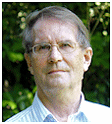 Huibert Kwakernaak, Editor-in-Chief Emeritus |
Huibert Kwakernaak was born in
Rijswijk (Z.H.), The Netherlands, in 1937. He obtained the diploma in Engineering Physics
from the Delft University of Technology in 1960, the M. S. degree in Electrical
Engineering in 1962 and the Ph. D. degree in Electrical Engineering in 1963, both from the
University of California at Berkeley. He worked at Delft University of Technology from 1964, first in the Engineering Physics Department and later also in the Mathematics Department, until in 1970 he was appointed Professor in the Applied Mathematics Department (now part of the Faculty of Electrical Engineering, Mathematics and Computer Science) of the University of Twente. He retired from his faculty position in 2002. Dr. Kwakernaak's research interests are in linear control and systems theory. He co-authored three books, the best known of which is Linear Optimal Control Systems, with R. Sivan, Wiley-Interscience, 1972. He is a Fellow of the IEEE and the IFAC; and holds the Distinguished Service Award of the IFAC and the Distinguished Member Award of the IEEE Control Systems Society. From 1994 until the end of 2003 he was Editor-in-Chief of Automatica. From 1995 until the end of 1999 he was the Scientific Director of the Dutch Institute of Systems and Control DISC, which is a national graduate school and research institute in the systems and control area in The Netherlands. |
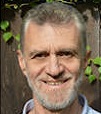
Roberto Tempo, Editor-in-Chief Emeritus |
Roberto Tempo
was a Director of Research of Systems and Computer Engineering at CNR-IEIIT, Politecnico di Torino, Italy. He has held visiting positions at Chinese Academy of Sciences in Beijing, Kyoto University, The University of Tokyo, University of Illinois at Urbana-Champaign, German Aerospace Research Organization in Oberpfaffenhofen and Columbia University in New York.
His research activities were focused on the analysis and design of complex systems with uncertainty, and various applications within information technology. On these topics, he has published more than 180 research papers in international journals, books and conferences. He is also a co-author of the book Randomized Algorithms for Analysis and Control of Uncertain Systems, with Applications, Springer-Verlag, London, published in two editions in 2005 and 2013. He was a Fellow of the IEEE and a Fellow of the IFAC. He iwas a recipient of the IFAC Outstanding Paper Prize Award for a paper published in Automatica and of the Distinguished Member Award from the IEEE Control Systems Society. He was a Corresponding Member of the Academy of Sciences, Institute of Bologna, Italy, Class Physical Sciences, Section Technical Sciences. In 2010 Dr. Tempo was President of the IEEE Control Systems Society. He is now serving as Editor-in-Chief of Automatica. He has been Editor for Technical Notes and Correspondence of the IEEE Transactions on Automatic Control in 2005-2009 and a Senior Editor of the same journal in 2011-2014. He was a member of the Advisory Board of Systems & Control: Foundations & Applications, Birkhauser. He was General Co-Chair for the IEEE Conference on Decision and Control, Florence, Italy, 2013 and Program Chair of the first joint IEEE Conference on Decision and Control and European Control Conference, Seville, Spain, 2005. On January 14, 2017, Roberto Tempo passed away during a skiing excursion at the Alps near his home town in Northwestern Italy. |